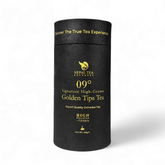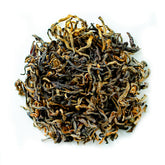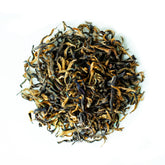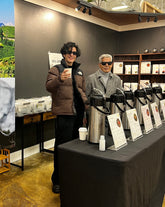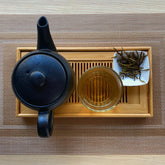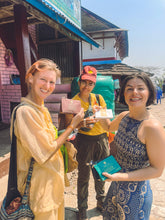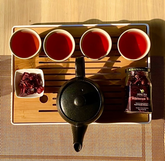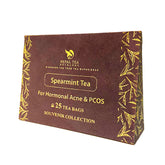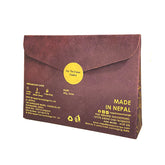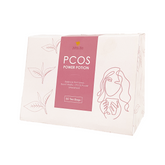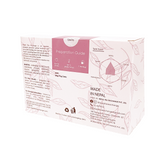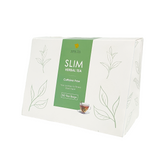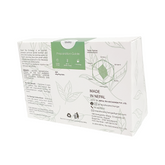Tea and Conversation: How Nepali Tea Culture Brings People Together
In the hills of Nepal, tea is never just a beverage. It's an invitation, a pause, a bridge between hearts. While the world rushes by, Nepali tea culture quietly reminds us of something we've almost forgotten: the profound power of sitting together with a warm cup and simply being present. As research has shown, tea drinking not only offers biochemical benefits but creates meaningful social connections that support mental wellbeing.
More Than a Morning Ritual
Walk into any Nepali home, and within moments, you'll hear the familiar question: "Chiya khanu huncha?" (Would you like some tea?). It's not merely politeness—it's an expression of welcome, care, and connection. The act of preparing and sharing tea creates a sacred space where conversations unfold naturally, where strangers become friends, and where the day's burdens feel a little lighter. In Nepali society, offering tea reflects the cultural value of "Atithi Devo Bhava" meaning "The guest is God."
In Nepal's villages and cities alike, tea marks the rhythm of daily life. It's the first thing that brings families together at dawn, the excuse for neighbors to catch up in the afternoon, and the centerpiece of evening gatherings where stories are shared and bonds are strengthened.
The Ritual of Togetherness
What makes Nepali tea culture special isn't just what's in the cup—it's what happens around it. When someone prepares tea in Nepal, they're not rushing through a task. There's mindfulness in boiling the water, measuring the tea leaves, adding the right balance of milk and sugar or spices. This deliberate process itself becomes a meditation, a signal that what follows matters.
The tea ceremony, informal as it may be, creates natural pauses in our busy lives. It gives us permission to sit down, to look each other in the eye, to ask "how are you?" and actually wait for the answer. In a world dominated by digital communication, this simple act of sharing tea face-to-face becomes revolutionary.
Tea Houses: Nepal's Community Living Rooms
Throughout Nepal, small tea houses, or chiya pasals, serve as informal community centers. These aren't fancy establishments—often just a simple setup with a few chairs, a kettle, and cups. Yet they're where life happens. Farmers discuss the season's harvest. Students debate ideas. Elders share wisdom. Travelers find local guidance.
These spaces democratize connection. Status and hierarchy fade away when everyone's holding the same clay cup of steaming tea. A porter and a businessman might sit side by side, united in the universal experience of taking a break, warming their hands around a cup, and exchanging a few words. Research confirms that such communal tea-drinking rituals create strong senses of community and belonging, with benefits that extend beyond just the biochemical effects of tea itself.
Recipes That Bring People Together
The beauty of Nepali tea is in its adaptability and the way each variation serves a social purpose:
Morning Dudh Chiya (Milk Tea)
The classic breakfast tea that brings families to the table. Strong black tea simmered with milk and sugar, often paired with morning snacks. It's the gentle wake-up call that says, "good morning, let's start the day together."
Simple Recipe:
- 2 cups water
- 2-3 teaspoons loose black tea (orthodox tea preferred)
- 1 cup milk
- Sugar to taste
Boil water, add tea leaves, simmer for 2-3 minutes. Add milk and sugar, bring to a gentle boil. Strain and serve hot.
Masala Chiya (Spiced Tea)
Reserved for special moments and colder days, this aromatic blend transforms tea time into an occasion. The warming spices—cardamom, cinnamon, ginger, cloves—create an experience that invites lingering conversation.
Simple Recipe:
- 2 cups water
- 2-3 teaspoons black tea
- 1 cup milk
- 2-3 crushed cardamom pods
- Small piece of fresh ginger (crushed)
- 1 small cinnamon stick
- 2-3 cloves (optional)
- Sugar to taste
Boil water with spices for 2 minutes. Add tea leaves, simmer for 2 minutes. Add milk and sugar, bring to boil. Strain and serve.
Kalo Chiya (Black Tea)
The afternoon choice for those seeking clarity and conversation. Served without milk, sometimes with a slice of lemon, it's lighter and allows for longer gatherings without the heaviness of milk tea.
Simple Recipe:
- 2 cups water
- 2-3 teaspoons orthodox tea
- Lemon slice (optional)
- Honey or sugar (optional)
Boil water, add tea leaves, steep for 3-4 minutes. Strain, add lemon or sweetener if desired.
Chiya with Local Touches
Some families add tulsi (holy basil) for wellness, others prefer a pinch of black pepper, and some add a bay leaf for aroma. These personal touches make each family's tea unique, and sharing these variations becomes a way of sharing identity and heritage.
The Gift of Presence
What makes Nepali tea culture truly special is the underlying philosophy: tea is an excuse to stop, to be present, to connect. In our hyperconnected yet lonely modern world, this seems almost radical. Studies show that sitting down with someone over tea releases serotonin and creates positive interactions that support emotional wellbeing. When was the last time you sat with someone for 20 minutes with no agenda other than to enjoy their company?
Nepali tea culture teaches us that hospitality isn't about perfection—it's about warmth. The tea doesn't need to be fancy. The setting doesn't need to be elaborate. What matters is the intention: "I'm glad you're here. Let's share this moment." Cultural research confirms that tea transcends age, economic status, and ethnicity, making it a powerful tool for inclusion and community building across diverse societies.
Creating Your Own Tea Ritual
You don't need to be in Nepal to embrace this culture of connection. Here's how to bring it into your life:
- Start small: Invite a friend, neighbor, or family member for tea. Not coffee to-go, but tea at home—sitting down, taking time.
- Put away distractions: No phones on the table. Let the tea and conversation be enough.
- Brew with intention: Take your time with preparation. Let the ritual signal that this time matters.
- Ask real questions: Move beyond "how are you?" to "what's been on your mind lately?" or "what's brought you joy recently?"
- Listen fully: Practice the lost art of listening without planning your response.
- Make it regular: Weekly tea with a friend can become a anchor in both your lives—a reliable moment of connection.
The Ripple Effect
When we create spaces for genuine connection, something remarkable happens. Conversations that might never occur in a text message unfold naturally. Understanding deepens. Loneliness eases. Community forms, one cup at a time. Global research on tea and mental health indicates that both the biochemical compounds in tea and the social rituals surrounding its consumption contribute to improved mental wellbeing, reduced stress, and enhanced community bonds.
In Nepal's tea culture, there's a gentle wisdom for our disconnected age: slow down, sit together, and let a simple cup of tea remind you of what matters most—the people beside you and the present moment you're sharing. Nepal's tea heritage, though relatively young in commercial terms, is becoming a catalyst for social and economic transformation while preserving traditions that emphasize connection and community.
At Nepal Tea Exchange, we believe tea is more than a product—it's a catalyst for connection. We're honored to bring you authentic Nepali tea that carries the warmth of Himalayan hospitality into your home. May it inspire you to create your own moments of meaningful togetherness.
Start Your Own Tea Conversation
Try brewing one of these traditional recipes this week. Invite someone you care about. Put your phone away. And discover what happens when you choose presence over productivity, even for just 20 minutes.
The mountains have been teaching this lesson for generations. Perhaps it's time we all pulled up a chair and listened.


